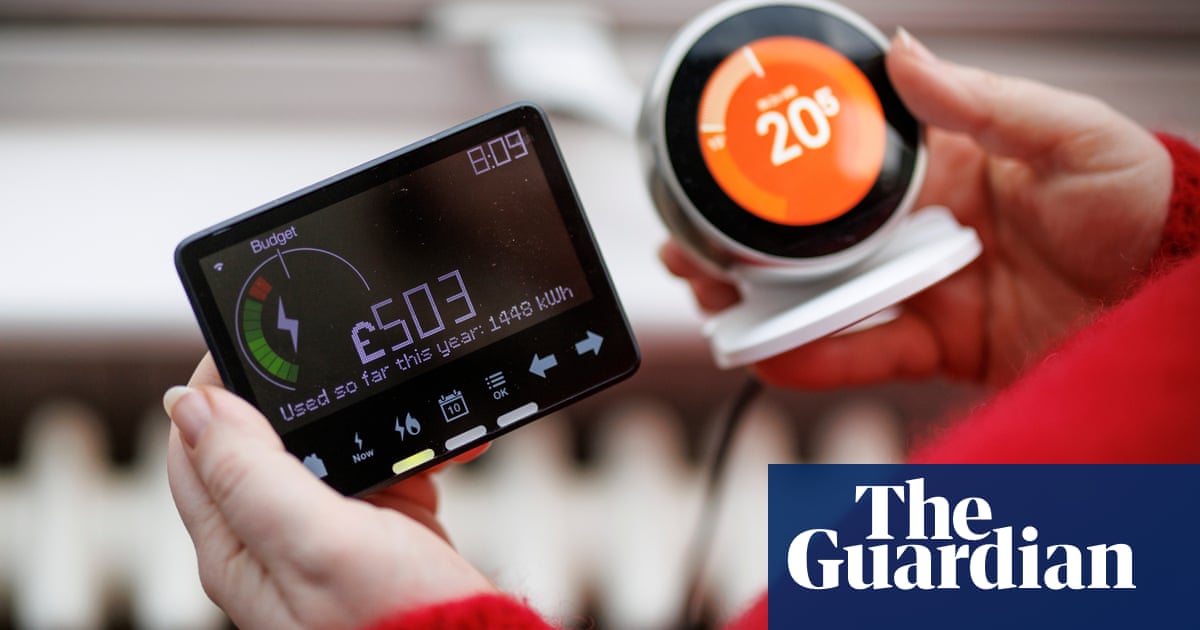A looming “weather bomb” is expected to snuff out a surge in wholesale energy prices after windfarms produced the lowest levels of electricity since September 2023.
Cloudy and still weather has caused Great Britain’s renewable energy output to fall to near zero this week but is expected to give way to gusts of up to 80mph, alongside heavy rain and snow, on Thursday and Friday.
The rapid onset of the “weather bomb” is expected to raise the risk of travel disruptions and damage caused by flying debris – but it will also lead to tumbling wholesale electricity prices by causing cheap wind power to surge 40-fold in 48 hours.
Britain’s wind power output fell to just above zero on Wednesday, which, combined with the cold, dark weather, caused the market price for electricity to climb to almost £250 per megawatt-hour at auction, or almost seven times the average price before the pandemic.
The sudden drop-off in renewable energy due to dull windless winter weather, known as dunkelflaute in German, has also forced the system operator to pay gas power stations more than £500/MWh to run on Wednesday evening when household demand is expected to reach its peak.
The weather conditions – the third dunkelflaute of the winter so far – left Britain’s electricity grid reliant on gas-fired power stations. They accounted for more than 70% of power generation at points on Wednesday.
However, electricity prices for Thursday and Friday have fallen by more than half, to £107/MWh and £84/MWh respectively at auction, as wind power is forecast to surge from 0.4GW to 16GW by Friday morning.
The whipsaw in available renewable energy has reignited calls for the UK to invest in so-called “long-duration energy storage” to set aside clean electricity when it is available to power the grid when it is scarce.
A select committee of MPs on Wednesday heard that long-duration storage, which includes pumped hydropower, was one of three vital steps required to meet the government’s target to run a clean power system by 2030.
The UK’s energy system operator estimates that it will need to grow by more than fivefold to between 11GW to 15GW by 2030 to help manage the fluctuations in renewable energy. Deploying 20GW could save the electricity system £24bn by 2050, and reduce household energy bills by cutting Britain’s reliance on expensive natural gas, according to the government.
Akshay Kaul, a director at Ofgem, the energy industry regulator, said: “We’ve seen this winter that when you have a period of still, cold, cloudy weather [that] batteries on their own, and [power] interconnectors on their own, are not sufficient.”
after newsletter promotion
The regulator was setting up a new funding framework to attract private capital into long-duration energy storage “and get these assets built by 2030”, Kaul said.
“That is quite a considerable challenge to physically get things like big pumped hydro storage built. But we relish it, we’re up for the challenge,” he added.
Barnaby Wharton, a director at RenewableUK, a trade association, said: “A modern energy system which maximises the use of wind and solar offers the best deal to consumers as they are our cheapest forms of new power and they protect us from spikes in international gas prices.
“Of course we need to continue to build resilience and flexibility in the system, so it continues to operate during periods of lower wind and solar at the cheapest cost for billpayers.”

.png) 3 months ago
38
3 months ago
38













































